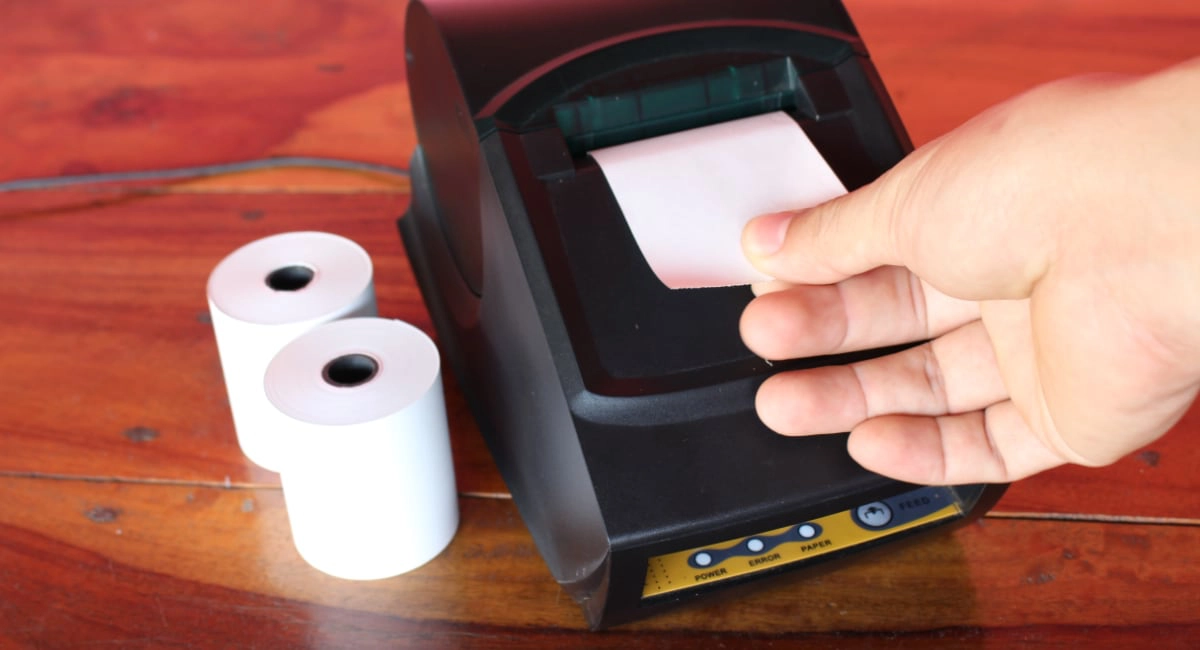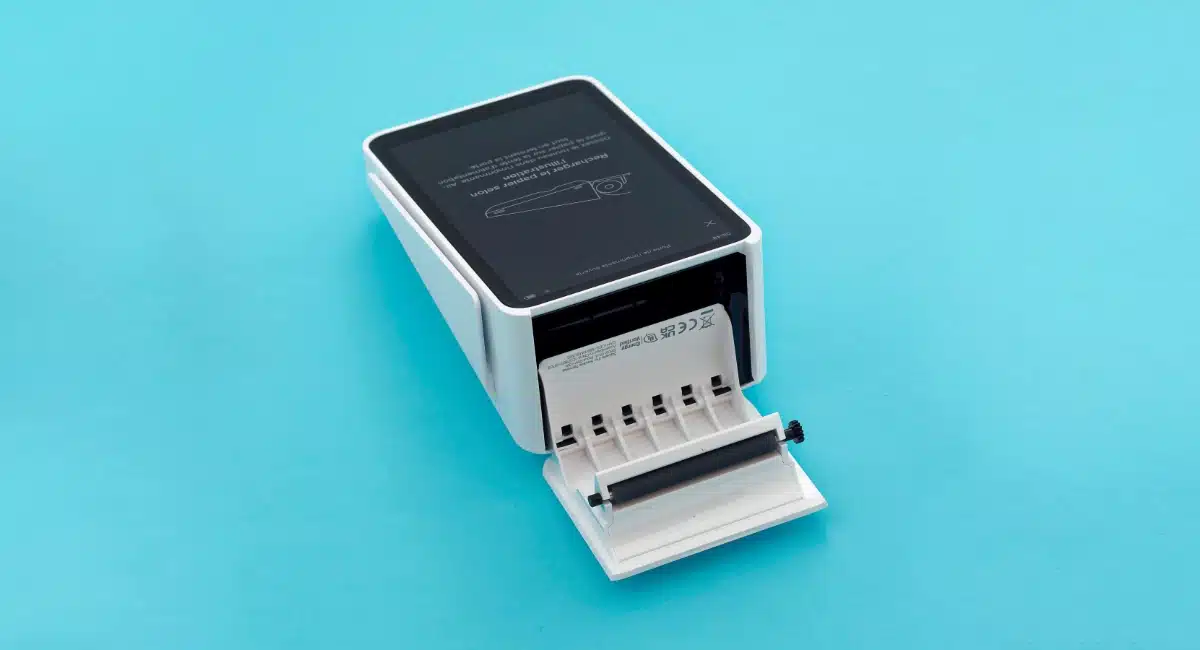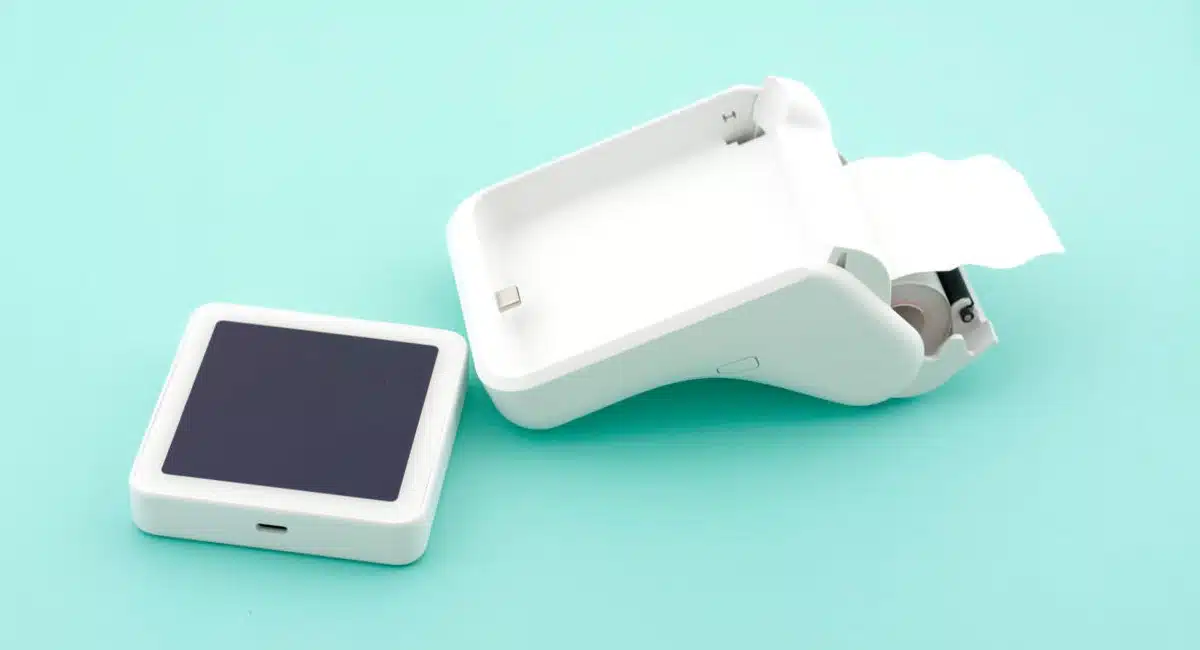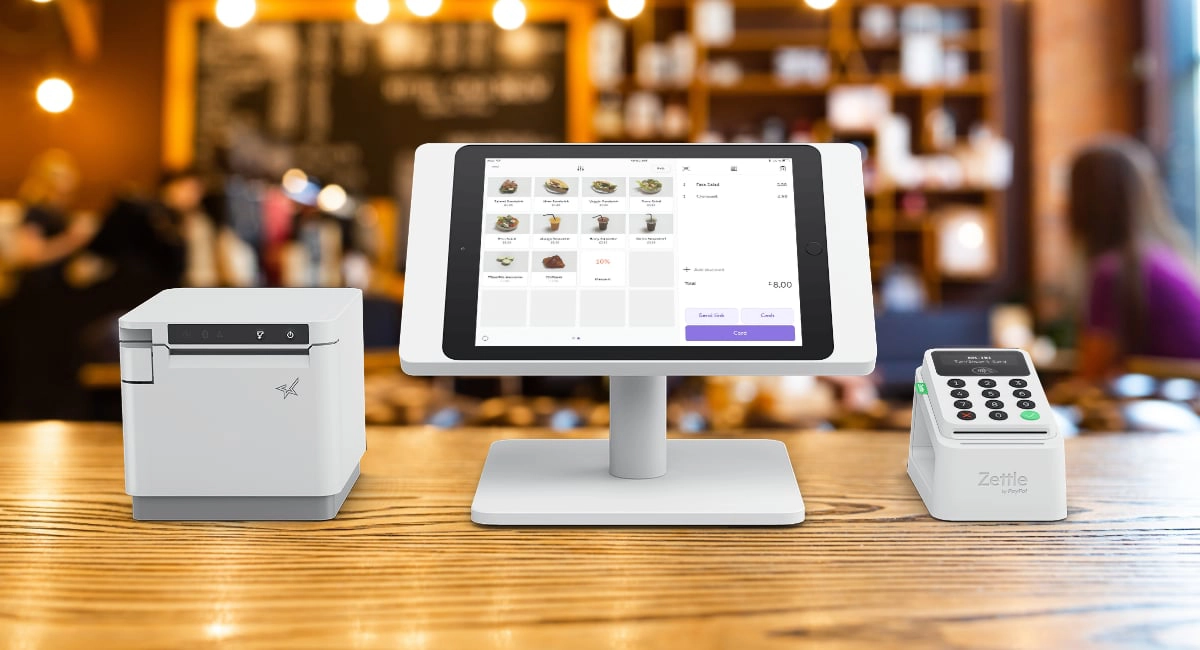It seems strange to question the harm in providing paper receipts since it is such a ubiquitous, seemingly harmless, part of the checkout experience. But that is exactly what many are doing now – and for good reason.
Why are paper receipts falling out or favour, paving the way for digital receipts?
Consequences for health
As it turns out, half of Britain’s 11.2 billion paper receipts handed out each year are non-recyclable and coated in the toxic chemical Bisphenol A – i.e. BPA – and in some cases the lesser-known and also toxic BPS. This applies to most thermal receipts – basically the shiny ones printed by card machines and receipt printers that don’t require ink.
The health risks of BPA coating on paper receipts are not to be underestimated. The chemical is associated with:
- Hormone imbalances
- Increased risk of infertility, miscarriage and premature birth
- Prostate cancer
- Type 2 diabetes
- Behavioural changes in children
- Altered brain and nervous system development
- Heart disease
- Obesity
BPA is absorbed directly through the skin – not great for cashiers handling receipts all day. To make matters worse, washing your hands actually makes it easier for the chemical to enter into the body, so the only way to avoid uptake of BPA is to wear gloves while handling the paper. It can linger in the body for months, causing an accumulation that increases the risk of negative effects.
Environmental impact
It is estimated that globally, 300 billion receipts of paper are produced annually, consuming 25 million trees, 18 billion litres of water and 22 million barrels of oil. At a time when biodiversity is decreasing and climate change is accelerating, this is a particularly wasteful “solution” when more and more consumers are storing payment records electronically anyway.
Moreover, BPA is not only bad for your health – it actually cannot be recycled as that would release more of the chemical into the air and contaminate groundwater. It is therefore strongly advised not to put receipts in the recycling bin. Unfortunately, the UK already generates 1.5 billion pounds of waste from paper receipts annually, so merely disposing them correctly still exacerbates our environmental footprint.
There are environmentally friendly paper receipts that are recyclable or made from recycled paper, so they’re not all bad. Still, many people can’t distinguish (or even notice) the difference between paper types, leaving room for error in the recycling process.
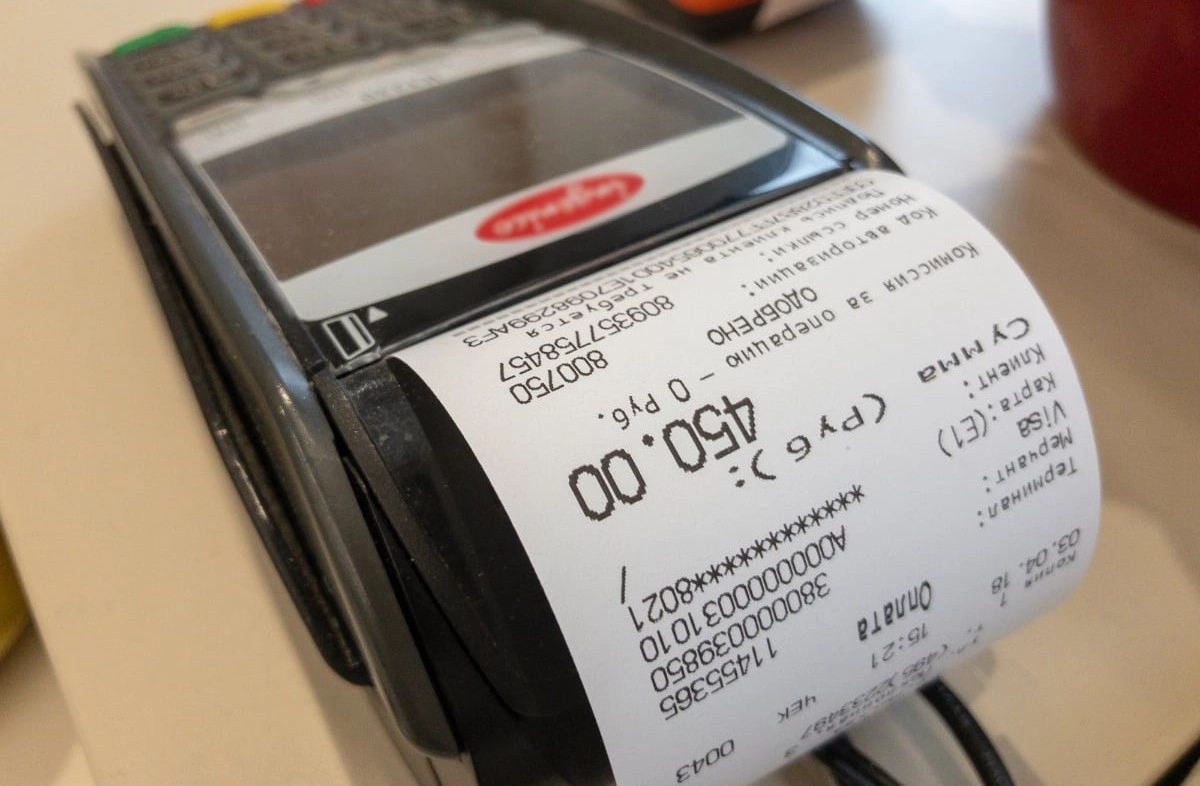
Card machines with an inbuilt receipt printer typically use thermal paper containing the toxic chemical BPA.
Not as practical as people like to think
In the name of “efficiency”, many shops auto-print receipts despite customers not wanting them. In fact, 90% of paper receipts end up in the bin, most of these straight after receiving them (just think about the supermarket bins next to self-service checkouts, stuffed with receipts). Of the kept receipts, many are lost when needed for refunds or bookkeeping.
Businesses claiming tax relief on their expenses also suffer, since most accounting today requires digital copies of receipts. It is becoming the norm to use cloud-based accounting software, which is perceived as more secure than records in folders vulnerable to physical damage or loss. That means more hassle for those who need to scan paper receipts, where they could have just received it electronically in a compatible format to the bookkeeping software.
The extra cost for businesses
While digital receipts are free to provide in most cases, it unanimously costs to print paper receipts. Either you need in inbuilt printer in a card terminal or cash register, or a separate receipt printer connected to the point of sale (POS) system.
Add to that the paper rolls, maybe ink and possibly printer maintenance, and you may see a difference to your profit margins if you’re a small-enough business.
It is often the case that cheaper card readers do not have an inbuilt printer, while pricier (often with a long-term contract) card machines use a thermal heat-based printer for card payment receipts only. With the latter, there is not usually an option to print cash transactions or itemised receipts, making them basically irrelevant for certain warranty purposes – and of course cash-only businesses.
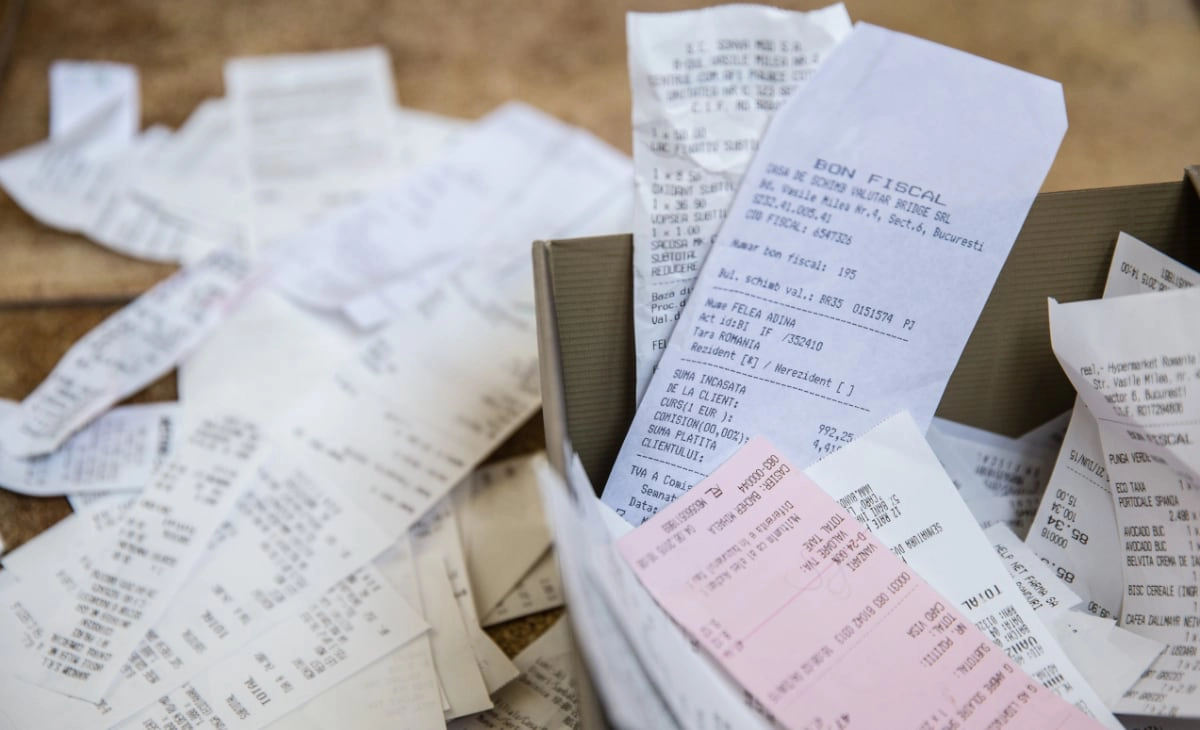
Looks familiar? Small paper slips can have a cumulative effect on the environment, health, finances – and storage system.
Are electronic receipts better?
Email and text receipts avoid the environmental footprint, and as long as your inbox doesn’t get hacked or you delete the electronic receipt, you should have a permanent record of it. That said, customers may not want to give out an email address or phone number if they’re concerned about privacy.
At a time when biodiversity is decreasing and climate change is accelerating, paper receipts is a particularly wasteful “solution” when more and more consumers are storing payment records electronically anyway.
Conversely, busy retailers may not want to risk slowing down queues to introduce the extra step of getting this information before the customer can have a receipt sent electronically.
Neither paper nor digital receipts are perfect, but that doesn’t mean there’s no optimal solution. The increasing need for businesses to be environmentally sustainable while keeping costs down paves way for more innovative systems. For instance, storing receipts automatically for card payments within a mobile wallet, banking or loyalty app takes the hassle out of the process.
Options for businesses
Most cloud-based POS systems connect mostly with thermal heat printers. This is often the most economical solution for businesses wanting to give paper receipts, which makes it harder to find an affordable option for those who want an environmentally-friendly paper solution. There are, however, more BPA-free alternatives in online stores now, so it is possible to use a thermal receipt printer without compromising on health.
On the other hand, businesses could just accept the more tedious process of buying a good old-fashioned receipt book to handwrite transactions for customers requesting it. This may not be such a bad idea since fewer customers today insist on paper receipts, but it could present problems in busy shops where impatient queues are sensitive to delays at the checkout.
One thing is clear: digital receipts are getting more favourable among big and small businesses. Retailers like Topshop and Argos have implemented it, as have food stalls, cafés and many other cash-strapped businesses using more economical POS systems.

